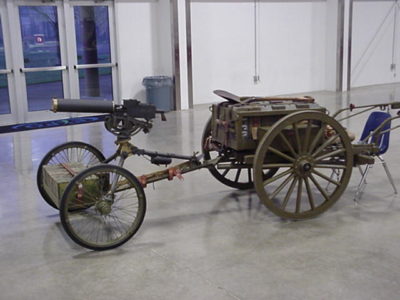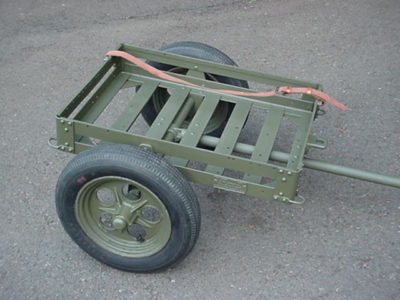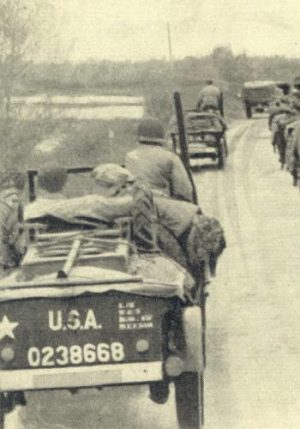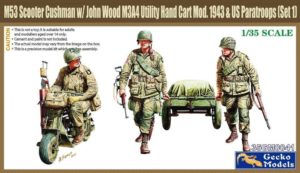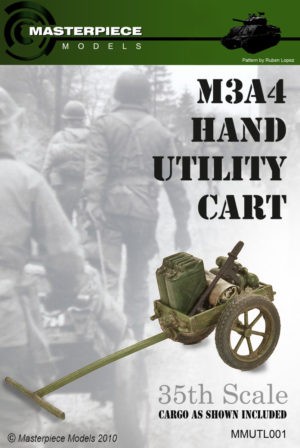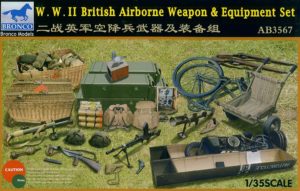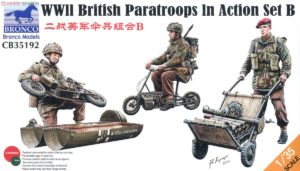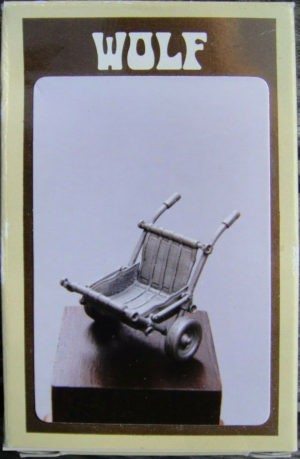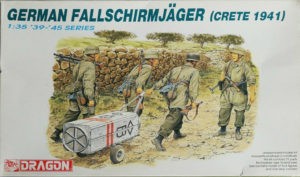Really combat handcarts
In the US Army, handcarts for various purposes have been widely used for a long time. All of them can be considered the heirs of the wooden M1917 Ammunition Cart, used during the WWI. At first it was used to transport ammunition boxes to a machine gun.
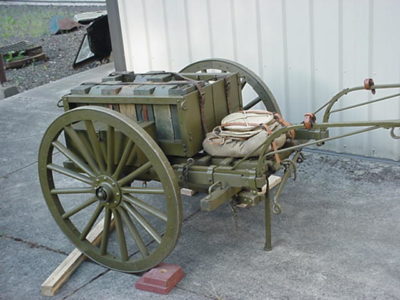 |
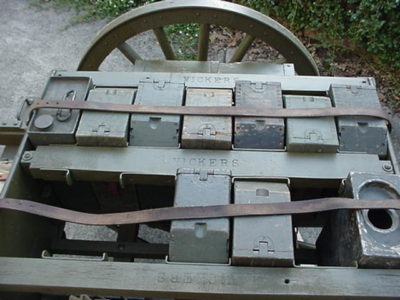 |
The assortment of machine guns corresponded to those used in the army. It could be: Colt Vickers M1915, Lewis Gun M1917, Colt Automatic Gun M1914.
Over time, the machine guns became more elegant and on the same cart it was possible to place the machine gun itself and supplies for it.
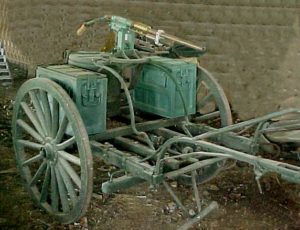 |
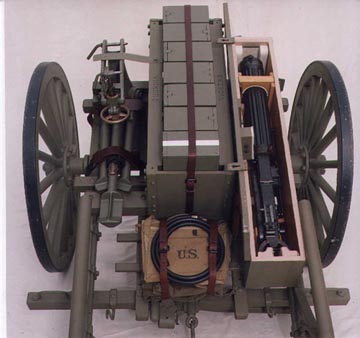 |
In 1927, progress won the final victory and the M1 bogie was implemented for the Browning M1917A1 water-cooled machine gun.
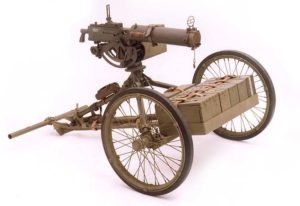 |
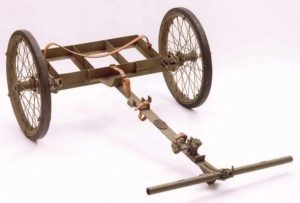 |
However, this did not part with the daddy M1917 Ammunition Cart
In the 30s, a number of bogies were adopted, the founders of which were the M3 and M3A4 bogies, which were completely the same except for the wheels.
The earlier M3 was equipped with 4 “x18” motorcycle wheels on a straight axle,
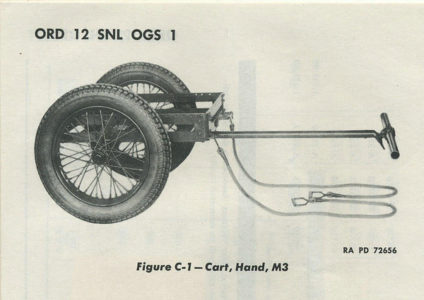 |
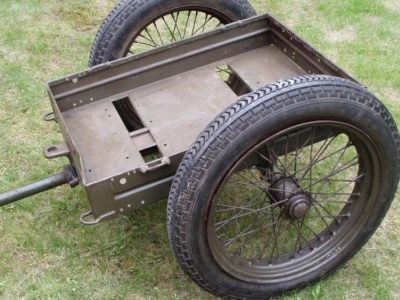 |
and the later one is cast aluminum in the size 4 “x12” on an offset axle.
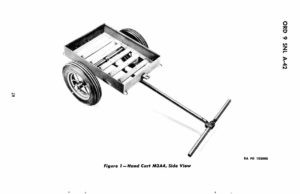 |
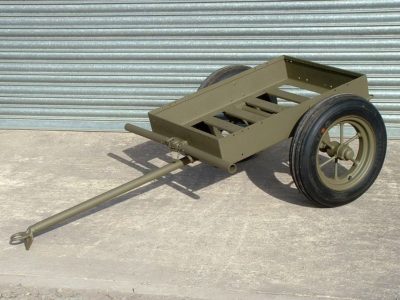 |
I hope the difference between the two types of axles will become clear from these photos.
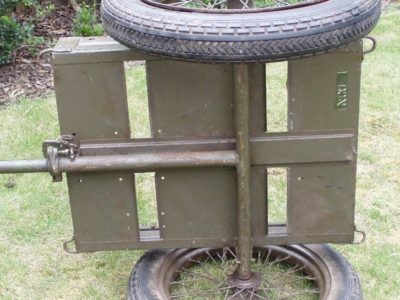 |
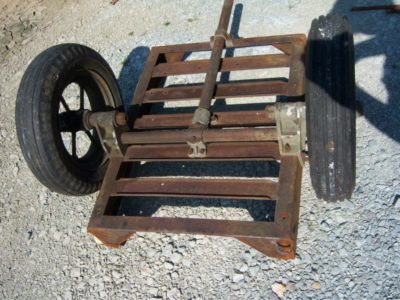 |
In general, there were at least two more types of tires.
And at least one more type of disc
In addition to the classic trolley movement
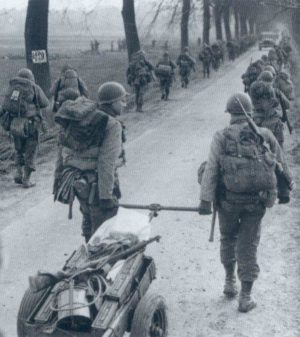 |
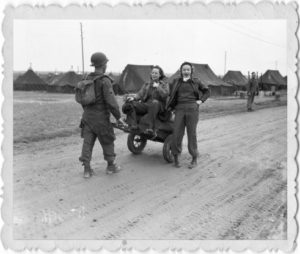 |
rope pulls were provided, to connect a couple more people to this process
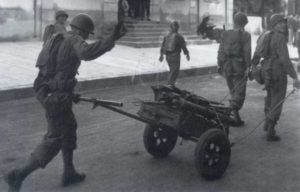 |
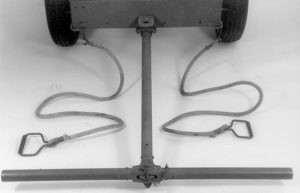 |
However, if it was really lazy, then by reconnecting the crossbar, freeing the towing device
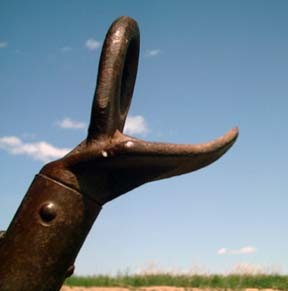 |
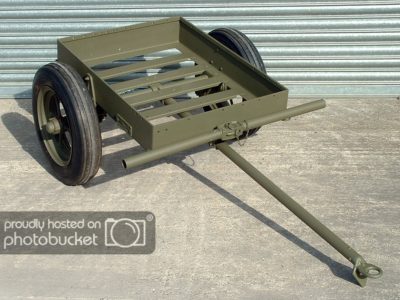 |
the cart could be hooked up to a wide range of tugs
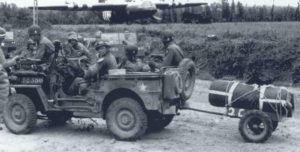 |
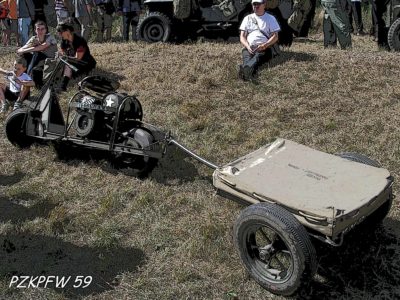 |
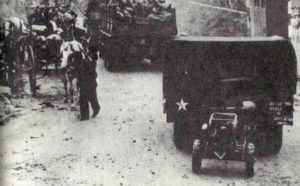 |
The cart itself could be transported as if packed
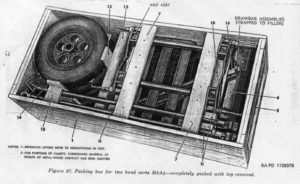 |
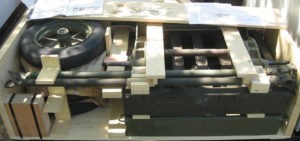 |
just disassembled
In WWII, the United States was armed with several modifications of the cart.
Interestingly, for each type of carts, its own cover was determined. So for the M3 and M3A4 general purpose the flat case M500 was used
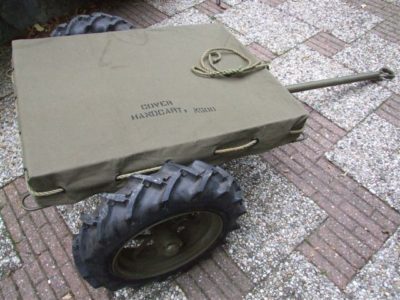 |
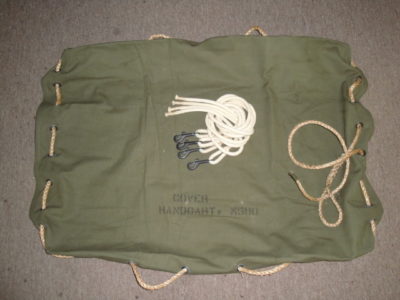 |
M4 / M4A1 and M3 / M3A4 for transporting the .30 M1917A1 Browning machine gun
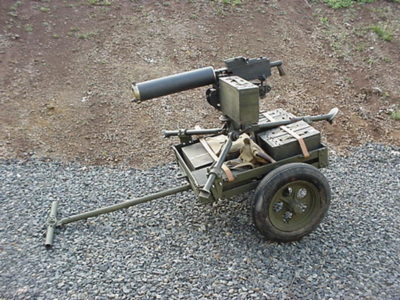 |
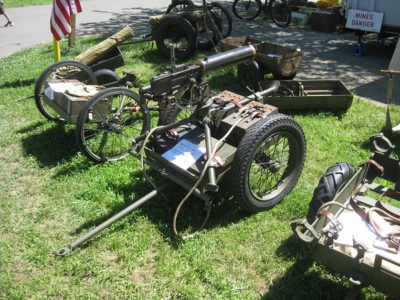 |
case used here M501
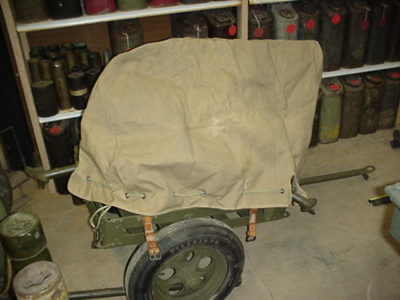 |
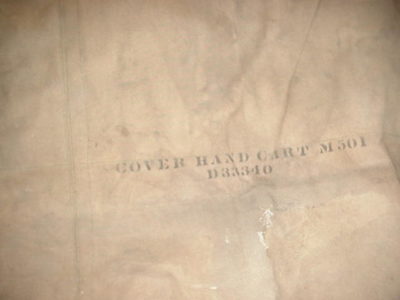 |
M5 / M5A1 , M3 / M3A4 for transporting the .50-caliber M2 Browning machine gun
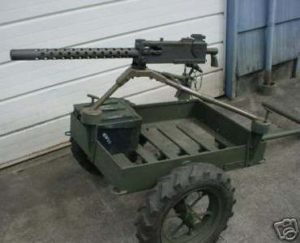 |
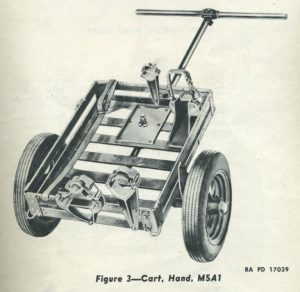 |
Used an M502 case but did not find an image.
M6 / M6A1 , M3 / M3A4 for transporting 81mm mortar M1
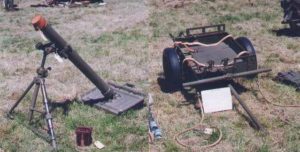 |
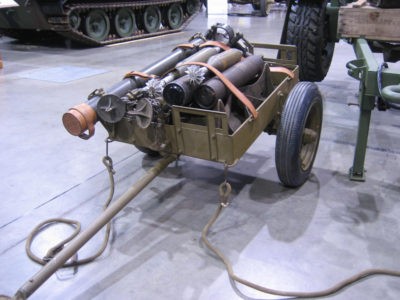 |
case M503
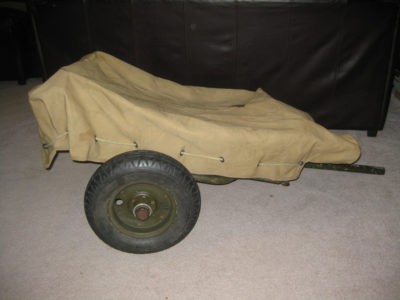 |
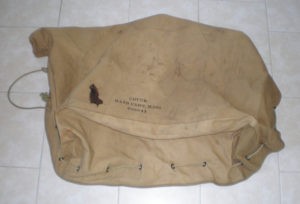 |
In 1944 it was developed by modification of the RL-35 cart for signalers.
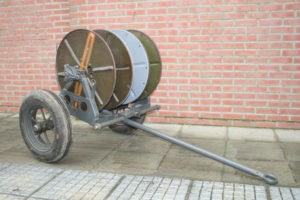 |
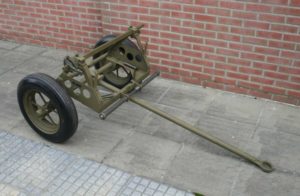 |
There is a strong belief that these carts were exclusively in the airborne units.
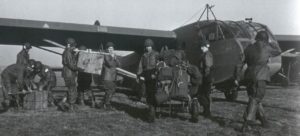 |
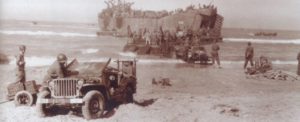 |
But this is not the case. This device is the standard weapon of the US Army.
After the WWII, this direction did not die out, after 1949, modifications from M7 to M8 appeared, etc.
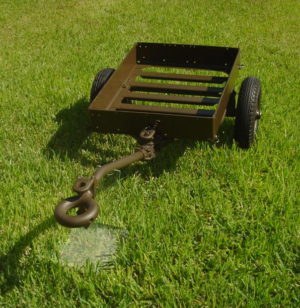 |
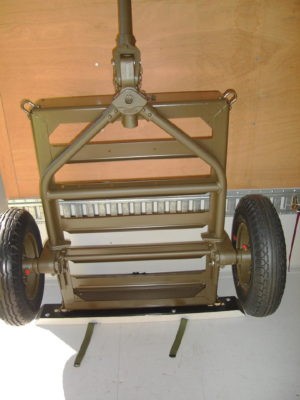 |
And why am I all this? And to the fact that a young Chinese company from Hong Kong Gecko Models just recently announced the release of
35GM0041 M53 Scooter Cushman w/John Wood M3A4 Utility Hand Cart Mod.1943 & US Paratroops (Set 1)
Czech PlusModel has a whole line of products
| 373 U.S. handcart M3A4 | 374 U.S. reelcart RL35 | 400 U.S. handcart M3A1 w/Browning 0,3 |
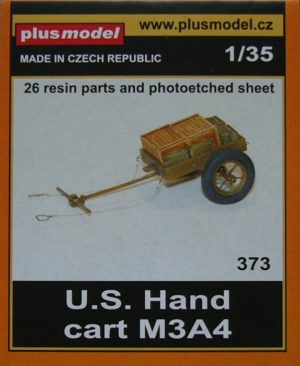 |
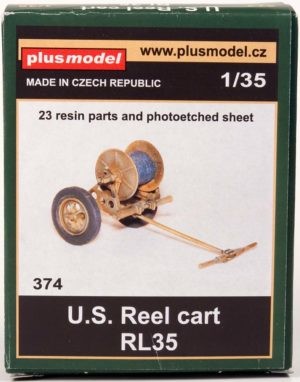 |
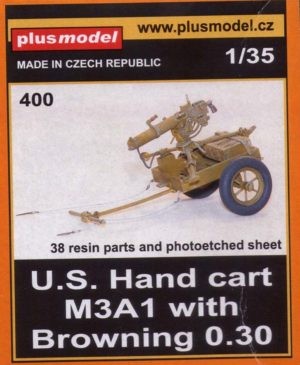 |
and a couple more combo sets
| 438 U.S. Airborne scooter with reel | 439 U.S. Airborne scooter with machine gun |
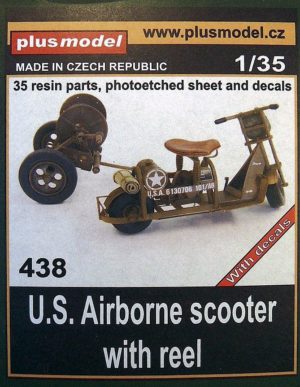 |
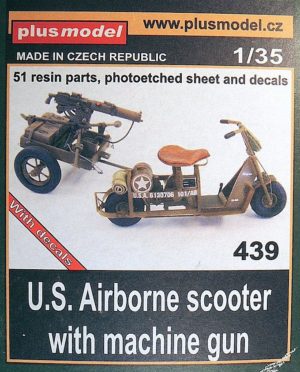 |
Well, the oldest manufacturer is the American (who would have doubted) Masterpiece Models with a set
MMUTL001 Hand Utility Cart
Approximately something similar was with the British, but there it is really for the landing – because it is foldable. You have already encountered it in a set from Bronco
AB3567 WWII British Airborne Weapon & Equipment Set
which was discussed in the section on bicycles. The manufacturer could not resist and repeated in another set
CB35192 WWII British Paratroops in Action Set B
Which is probably good, because until then this device was only available in a metal set from the English Wolf Hornet Models
WAA 03 British Airborne Trolley
PS (17.03.2021) But the German parachutists, it turns out, had their own similar devices, which were displayed in a set from the Chinese Dragon
6070 German Fallschirmjäger (Crete 1941)
